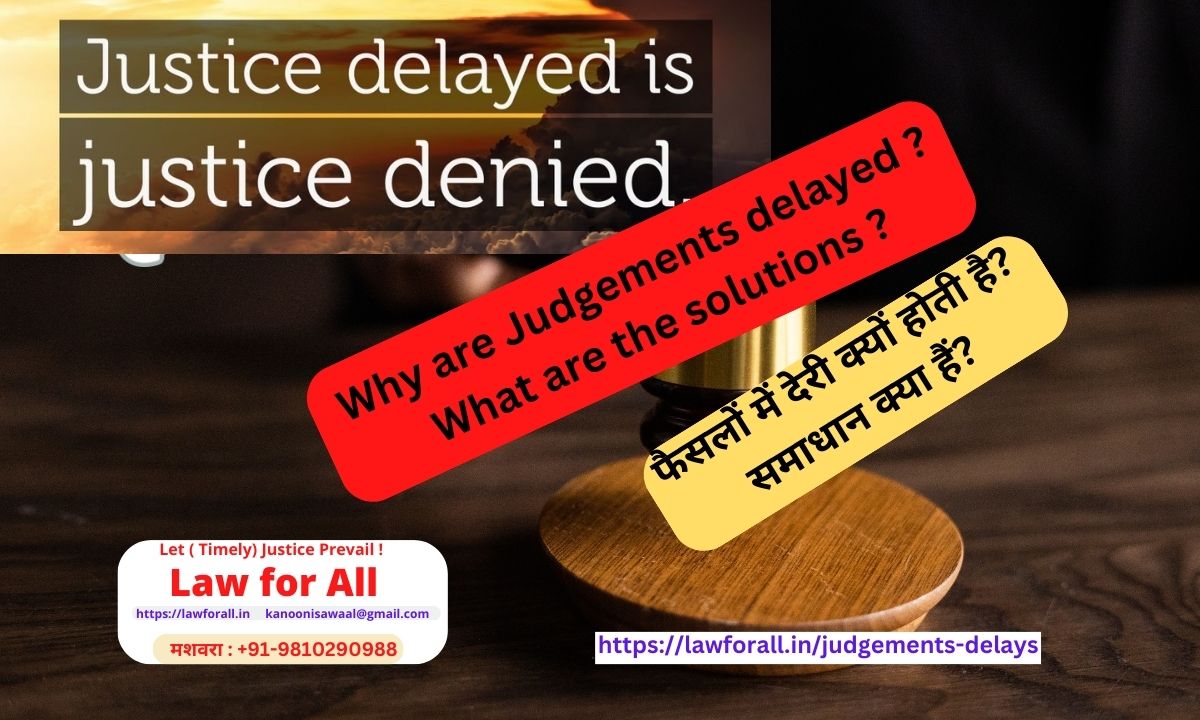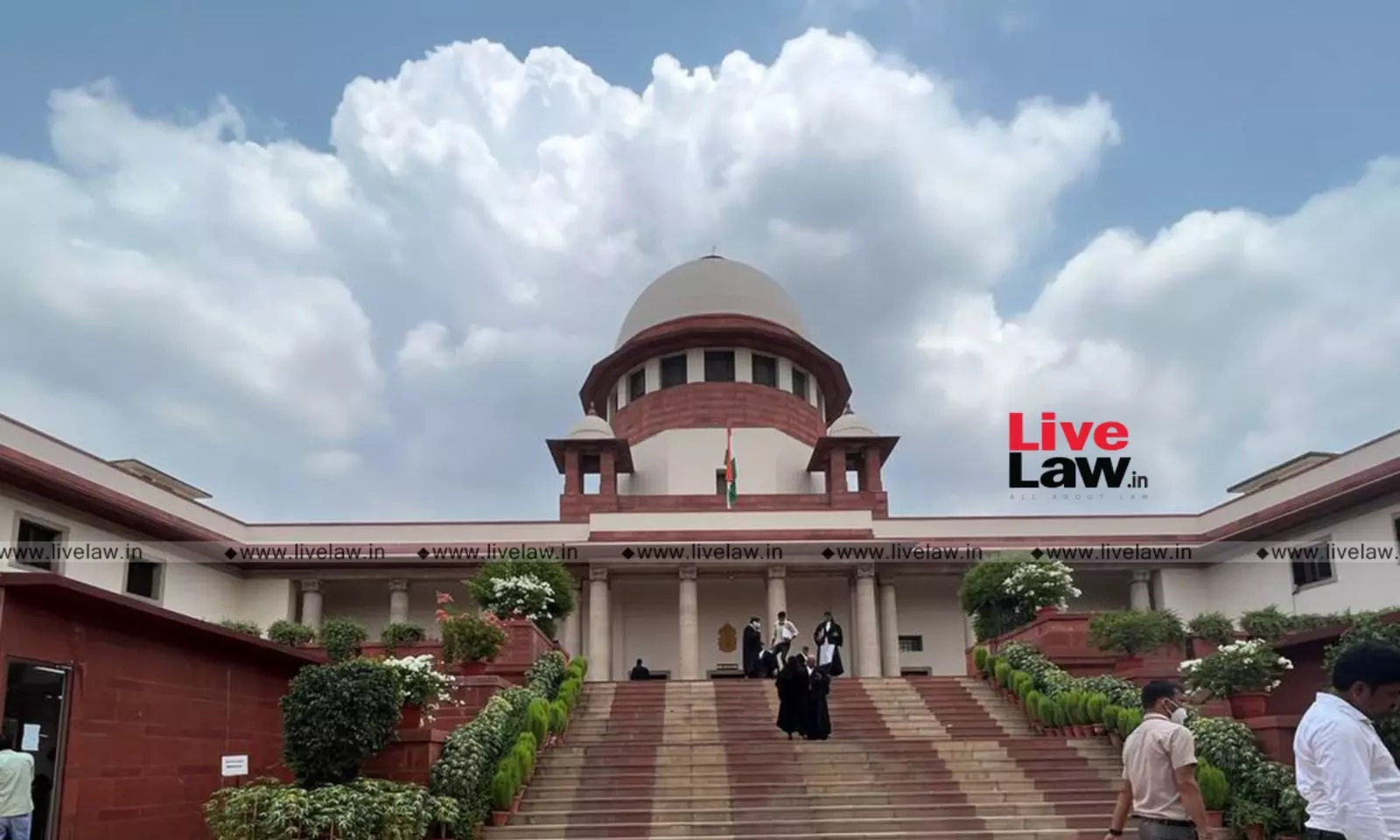- Reams and reams have been written on how the justice denied to any citizen of the country is justice delayed. The very motto of the judiciary is based on the premise that no justice seeker should be denied relief/verdict over an extended period simply because it defeats the purpose of speedy delivery of the case. Unfortunately, in the Indian context, the very mention of courtrooms conjures up an image of a harassed justice seeker inordinately waiting for the delivery of justice despite making innumerable attempts to obtain relief. We have witnessed several articles, essays, talks, writeups, cinemas, satire, and sarcastic plays highlighting how the Indian judicial system time and again fails to deliver justice to ordinary citizens seeking one. Things haven’t changed one bit.

PC: Law for all
- Of course, successive Chief Justices of India have made earnest attempts at addressing the glaring anomaly stalking the judicial delivery system, but the success of such endeavors has been limited. The latest attempt emanated from the incumbent CJI to fix a major reason that contributes to case pendency. The practice of reserving judgments for months beyond stipulated periods, where judges put off announcing their decision, long after hearing are over. This delay is entirely on the judge. Yet, CJI’s initiative, of seeking details from all HCs of cases awaiting verdicts for over 3 months, had an unforeseen fallout. CJI said several judges had hurriedly released cases for fresh hearings. This meant the entire process must start from scratch, a massive setback.
- Not just financially for those who move court, but also judges will be burdening litigants to avoid their inefficiency getting marked. Rightly, CJI called it a waste of judicial time, damaging to principles of judicial efficacy and speedy justice. As if the egregious practice of inordinate delays wasn’t bad enough, judges, trying to dodge CJI’s initiative, were being deceitful at the workplace. Not for nothing are questions raised on judicial probity. CrPC says judgments must be given either immediately after termination of trial or at some subsequent time for criminal cases. For the uninitiated, SC, in 2001, interpreted CrPC’s at some subsequent time as a maximum of six weeks and no more, no matter the case. In practice, this doesn’t work in this manner.

PC: Livelaw
- Further, detailed guidelines were issued, including maintaining a register of dates of when a judgment was reserved, and when a verdict was finally pronounced. SC sought HC chief justices should review monthly lists of such cases, and nudge benches involved. Mind you, rules also exist to send cases to a fresh bench in the event of inordinate delay – a rule judges blatantly exploit. Yes, arriving at a judgment is an intense exercise. Far too many are so shoddily written that they are but a garble of words. CJI repeatedly urges judges to write in simple understandable language. Too often when the reasoning for decisions is missing from verdicts, CJI has pointed out how judges were bending the rules. Will it have any impact? The time alone will reveal the same.






